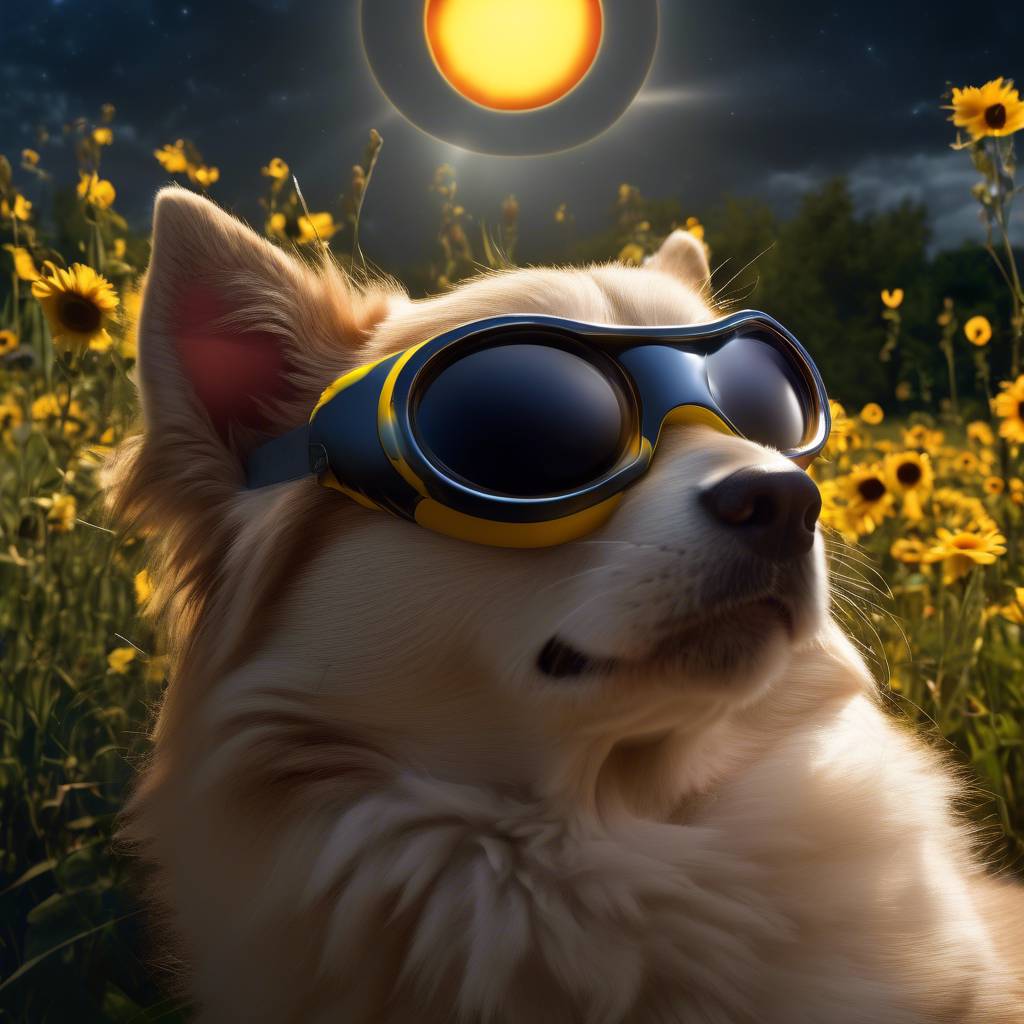Millions of people across North America are gearing up to watch the Great American Eclipse, and experts have shared important advice on how to safely enjoy this phenomenon. The most crucial tip is to never look directly at the sun without protection as it can cause permanent eye damage within seconds. For those looking to watch the eclipse, it is safest to avoid looking at the sun altogether and use indirect viewing methods like a pinhole projector or watching footage on a screen. If viewing directly, specially designed eclipse glasses should be used to ensure protection.
Children are not especially vulnerable to the sun’s effects on their eyes, but they may not understand how to safely view the eclipse. Supervision is essential to ensure that kids are using eclipse glasses correctly. Parents are advised to have a plan in place and be aware of where their children are looking during the event. It is important to make sure that children understand the dangers involved. During the brief period of totality, when the moon fully blocks the sun, protective eyewear can be removed to view the eclipse safely, but it must be put back on as soon as the partial eclipse resumes.
When it comes to eclipse glasses, not all lenses are created equal. It is crucial to ensure that the protective gear is up to code and filters in the glasses comply with the ISO 12312-2 standard. Sunglasses are not sufficient for viewing the sun safely, and using them can result in permanent damage. It is also important to acquire protective gear from reputable vendors and ensure that the glasses are in good condition, without any cracks or damage. Animals are generally safe during eclipses as they do not look directly at the sun, but changes in lighting may cause some confusion or fear-like responses. Pets should be kept inside with the lights on to prevent any negative reactions.
There are still many unknowns when it comes to how animals react during eclipses. While most animals do not exhibit any noticeable responses, some species may exhibit unusual behavior. By studying animal behavior during the eclipse, we can learn more about how they are affected by these events. Citizen science projects are available for those who want to report observations of animal behavior during the eclipse. By sharing information and observations, researchers can gain a better understanding of how animals respond to this natural phenomenon. It is essential to remain calm around pets during the eclipse to prevent any negative reactions or fear-like responses.






![The Transformation of Marketing: Embracing a Human-First Approach [Infographic]](https://linkedindaily.com/wp-content/uploads/2024/05/the-transformation-of-marketing-embracing-a-human-first-approach-infographic-330x220.jpg)


